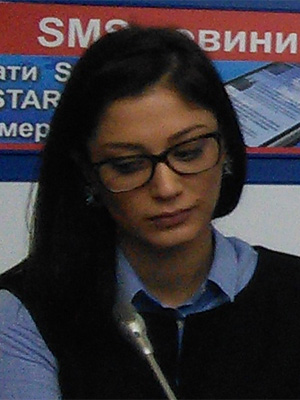Whenever it comes to work, most Bulgarians say they would do it, only if adequate wage was offered to them. This is also evident from data of a new representative survey on the attitudes of permanently unemployed Bulgarian citizens. According to sociologists, this group has never been studied in Bulgaria because it is not included in any lists. That is why it was necessary to find special access to these people, whom research center TREND that conducted the study, places in the group of demotivated Bulgarians. The survey was conducted using an innovative methodology, while the initiative was an idea of Ivaylo Kalfin, former Deputy Prime Minister and Minister of Labor and Social Policy, with the financial support of the Friedrich Ebert Foundation. Labor policies targeting these people have not been created so far, Ivailo Kalfin says and adds:
 “For quite some time various articles read that there are about 150,000 people in Bulgaria who are not looking for a job; they do not visit labor offices and do not work. I always thought the problem was overestimated. Efforts were then focused on reducing unemployment, but demand for employers is now higher, and it is normal to focus attention to this area, too. Business insists on opening and liberalizing the import of foreign workers, but this will not compensate for the needs of our economy. The group of people who do not work and do not look for a job is quite special. Their number in reality is about 300 thousand. Secondly, labor market policies in Bulgaria are based on the supposed activity of the unemployed. It is assumed that people are looking for a job, opportunities, actively trying to find a source of income. However, demotivated people do not show activity. The majority of them say they rely on finding jobs with the help of relatives, rather than through employment offices or the Internet. We tried to analyze the study, including the profile of this group of people and their motivation.”
“For quite some time various articles read that there are about 150,000 people in Bulgaria who are not looking for a job; they do not visit labor offices and do not work. I always thought the problem was overestimated. Efforts were then focused on reducing unemployment, but demand for employers is now higher, and it is normal to focus attention to this area, too. Business insists on opening and liberalizing the import of foreign workers, but this will not compensate for the needs of our economy. The group of people who do not work and do not look for a job is quite special. Their number in reality is about 300 thousand. Secondly, labor market policies in Bulgaria are based on the supposed activity of the unemployed. It is assumed that people are looking for a job, opportunities, actively trying to find a source of income. However, demotivated people do not show activity. The majority of them say they rely on finding jobs with the help of relatives, rather than through employment offices or the Internet. We tried to analyze the study, including the profile of this group of people and their motivation.”
This is the first study of the attitudes of people unemployed for a year. The data are very similar to those of the National Statistical Institute, which calculates that the group of discouraged Bulgarians who are not looking for work is about 163 thousand in the age range of 15 - 64 years. According to the TREND poll, 155,000 people are not active because there is no work. The poll comes to other important conclusions. More from Evelina Slavkova from the TREND center:
 “We see that the share of 18-29-year-olds is the largest among discouraged Bulgarian. One of the reasons why these people are not on the labor market is their lack of professional orientation. The largest percentage of such Bulgarians live in villages where finding opportunities is not so easy. That is why an issue that we are interested in is mobility - whether young people from small settlements would go to work in a place that is up to 50 kilometers away from them. We see that 40% of young people are inclined to such a step. Unfortunately, the motivation for mobility is very small among adults. Our conclusion is that clear policies are needed to target each subgroup. Among the main reasons for demotivation is the fact that other household members receive income, and people do not actually have to work because others support them. 72% of those 330 thousand people we consider to be demotivated depend mainly on their relatives and other family members. Such people say they rely on others and have no personal income. 2 percent of households polled said they live in extreme poverty and had no incomes. When we talk about what the business can do, it becomes clear that it needs to have a realistic and sober look at expectations of Bulgarians when it comes to labor market conditions. In small villages, people would often work for less than 300 euros a month, but elsewhere they would only start a job if they received at least 500 euros. Remuneration actually remains the biggest factor determining labor market conditions.”
“We see that the share of 18-29-year-olds is the largest among discouraged Bulgarian. One of the reasons why these people are not on the labor market is their lack of professional orientation. The largest percentage of such Bulgarians live in villages where finding opportunities is not so easy. That is why an issue that we are interested in is mobility - whether young people from small settlements would go to work in a place that is up to 50 kilometers away from them. We see that 40% of young people are inclined to such a step. Unfortunately, the motivation for mobility is very small among adults. Our conclusion is that clear policies are needed to target each subgroup. Among the main reasons for demotivation is the fact that other household members receive income, and people do not actually have to work because others support them. 72% of those 330 thousand people we consider to be demotivated depend mainly on their relatives and other family members. Such people say they rely on others and have no personal income. 2 percent of households polled said they live in extreme poverty and had no incomes. When we talk about what the business can do, it becomes clear that it needs to have a realistic and sober look at expectations of Bulgarians when it comes to labor market conditions. In small villages, people would often work for less than 300 euros a month, but elsewhere they would only start a job if they received at least 500 euros. Remuneration actually remains the biggest factor determining labor market conditions.”
English: Aexander Markov
Europe Day or Victory Day? May 8th or May 9th? It is not that we do not constantly encounter socially divisive topics, and the current date – May 9th celebrating the victory over Nazi Germany in 1945 in World War II also causes debates in Bulgaria year..
The FameLab International Science Communication Competition aims to discover, train and give a platform to the world’s most promising new scientists. The competition was created in 2005 by the Cheltenham Science Festival, the largest and most..
"United We Stand" - Bulgaria's national motto - will be put into action on May 8 by the Bulgarian community in New York City, amid the realities of the times and the distance from home. At 7 pm local time, the Bulgarian Consulate General and the NYC..
The FameLab International Science Communication Competition aims to discover, train and give a platform to the world’s most promising new scientists. The..
"United We Stand" - Bulgaria's national motto - will be put into action on May 8 by the Bulgarian community in New York City, amid the realities of the..
"We may be 10 hours behind Bulgaria, but our compatriots on the West Coast of the United States deeply cherish everything that connects them to Bulgaria..

+359 2 9336 661
